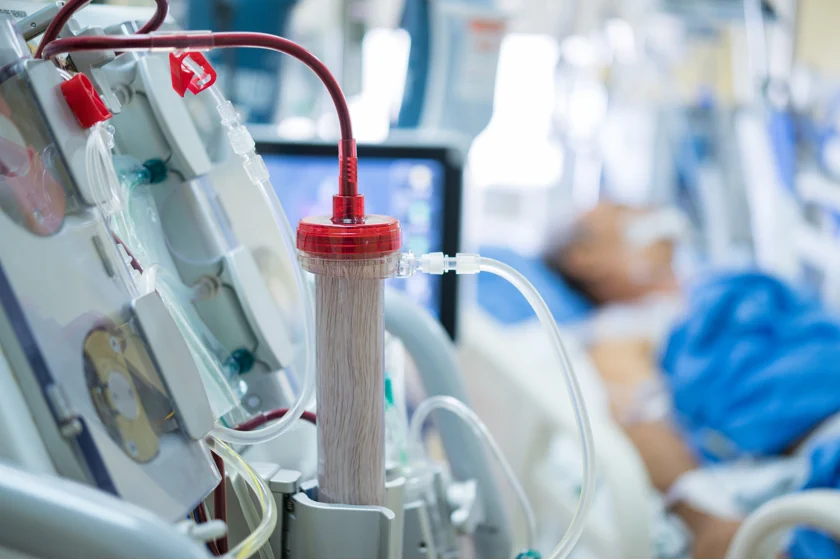03 Feb 2026
Rhinoplasty Revision Surgery in Mohali: Cost When Your First Nose Job Fails


Dr. Raka Kaushal
22 May 2025
Call +91 80788 80788 to request an appointment.
Advanced kidney disease, also known as end-stage renal disease (ESRD), poses significant health challenges for individuals. Traditionally, patients with ESRD faced dialysis as a primary treatment option. However, advancements in nephrology have paved the way for alternative approaches that aim to manage kidney health without the need for dialysis. This blog explores the innovative, dialysis-free management options currently available for those managing advanced kidney disease, focusing specifically on advanced kidney disease management in Punjab.
At Livasa Hospitals, we understand the complexities associated with kidney disease. Our experienced nephrology specialists in Punjab are dedicated to providing comprehensive care plans tailored to each patient's unique circumstances, promoting kidney health and enhancing the quality of life.
Kidney disease stages range from mild to severe, with advanced kidney disease indicating a pronounced decline in kidney function. Commonly, patients find themselves in the final stages when their kidneys can no longer sufficiently filter waste from the blood. This can lead to dangerous levels of toxins and fluid accumulation in the body.
Causes of advanced kidney disease can vary widely and include:
Symptoms may include fatigue, swelling due to fluid retention, and changes in urination patterns, highlighting the importance of early detection and management.
Patients experiencing advanced kidney disease may present a variety of symptoms, which can significantly impact daily life. It's crucial to recognize these signs early to engage in effective management strategies. Key symptoms include:
Recognizing and monitoring these symptoms can help doctors make timely decisions regarding treatment options.
While traditional treatments for advanced kidney disease predominantly involve dialysis or kidney transplantation, these methods are not suitable for everyone. Dialysis serves as an artificial means to filter waste products from the blood when kidneys are unable to function. There are two primary types of dialysis:
| Dialysis Type | Description | Frequency |
|---|---|---|
| Hemodialysis | Blood is removed, filtered, and returned to the body through a machine. | Typically 3 times per week. |
| Peritoneal Dialysis | Uses the lining of the abdomen to filter blood, allowing for at-home treatment. | Daily, often multiple times a day. |
Each dialysis method comes with its own set of benefits and challenges, and finding the right fit can be overwhelming. However, patients now have access to innovative, alternative treatments that aim to improve quality of life without the burden of dialysis.
Advances in nephrology have introduced several promising treatments that can replace or complement dialysis. These alternatives aim to improve kidney health and are especially beneficial for patients eligible for dialysis-free kidney treatment in Punjab. Some of these approaches include:
By employing a combination of these methods, many patients find significant relief from their symptoms while avoiding the need for dialysis. Consulting with a nephrology care specialist can help patients identify the most suitable management strategies tailored to their unique needs.
In addition to medical treatments, lifestyle choices can play a vital role in maintaining kidney health. Patients should consider the following modifications to complement their treatment plan:
These lifestyle modifications can significantly alter the trajectory of kidney disease, providing patients with added tools in managing their health.
Nephrology specialists in Punjab play a pivotal role in guiding patients through the complexities of kidney disease management. Their expertise involves:
Livasa Hospitals is proud to have a team of dedicated nephrology professionals who prioritize individualized care, ensuring each patient feels supported throughout their journey.
Managing advanced kidney disease without reliance on dialysis is a transformative goal that aligns with patient-centered care principles. By focusing on advanced kidney care strategies and innovative treatments available in Punjab, patients now have the opportunity to improve their health outcomes and quality of life significantly.
At Livasa Hospitals, we believe in empowering patients with knowledge and options for kidney health. Whether you are seeking kidney disease treatment without dialysis in Punjab or exploring alternative therapies, our nephrology specialists are here to help guide you toward optimal kidney function.
For more information or to book an appointment, please visit our website at Livasa Hospitals or call us at +91 80788 80788.
Remember, early intervention can significantly improve your health. Book an appointment at Livasa Hospitals today to assess your kidney health and explore your options for treatment without dialysis.
Rhinoplasty Revision Surgery in Mohali: Cost When Your First Nose Job Fails
Plastic Surgery After Massive Weight Loss: Body Contouring Packages in Mohali
ENT + Cosmetic in Mohali: Septoplasty for Breathing with Cosmetic Rhinoplasty Offers
Livasa Healthcare Group Corporate Office,Phase-8, Industrial Area, Sector 73, Sahibzada Ajit Singh Nagar, Punjab 160071
| Mohali | +91-99888 23456 |
| Amritsar | +91-99887 49494 |
| Hoshiarpur | +91-99883 35353 |
| Nawanshahr | +91-75081 82337 |
| Khanna | +91-98888 05394 |